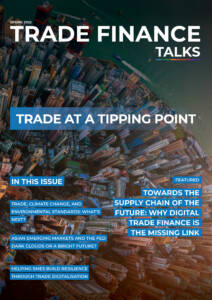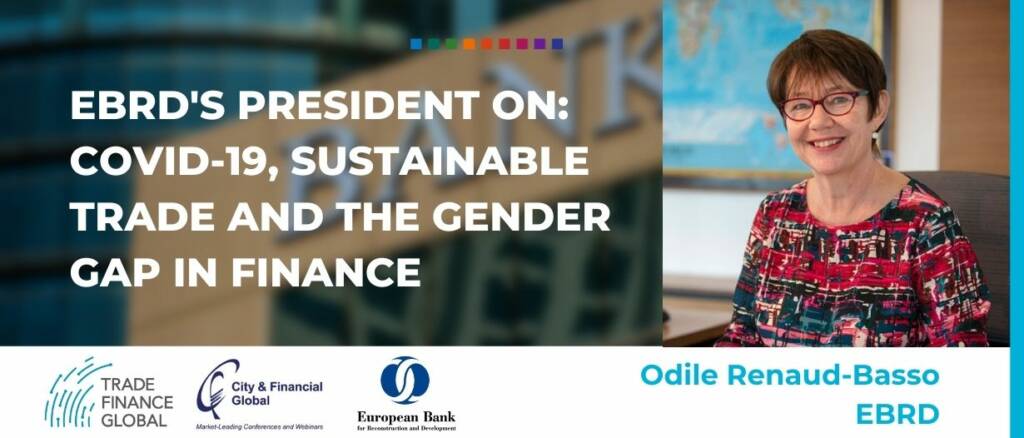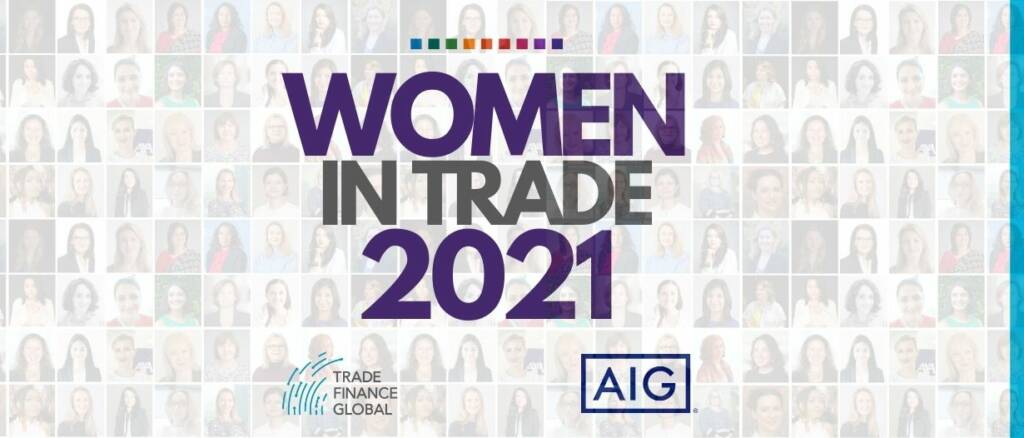With more than 20 years’ experience in trade finance, Lorna Pillow has seen the industry evolve a great deal since taking her first job as a post-graduate in 1998.
After leaving the University of Malta with a degree in banking and finance, she started out as a trust administrator at Blevin Franks, before moving on to become a general manager of the repo desk at Sanara Agency (RZB Vienna), and later a vice president at Malta’s FIMBank.
Since 2005 she has held an executive role at the London Forfaiting Company – moving from vice to first vice to senior vice president – and in 2014 she became a board member at the International Trade and Forfaiting Association (ITFA).
In her current role as deputy chair and head of communication and membership at ITFA, few are better positioned to spot trends in recruitment, skills, and education throughout the trade finance industry.
Speaking to Trade Finance Global (TFG), Pillow said she has overseen major changes as head of communication at ITFA, not just in the way the association presents itself, but also in terms of its reach and scope.
“When I joined the board, I set myself a target of improving our communication tools, and ensuring that our message comes across to members and non-members, and to bring more brand awareness,” she said.
Pillow’s first major change was to create a new website for ITFA – with the help of a design agency known as DNA – followed by setting up a secretariat.
“ITFA has always been fortunate to be surrounded by market leaders,” she said.
“However, the secretariat allowed us to be more proactive, to be more efficient, and to also make use of social media tools.”
The association has now been “transformed” from one which was primarily focused on forfaiting and trade receivables to one which is much more diverse.
“Through the exceptional work of committees such as the insurance and later the fintech committee, we are now close to a 300-member institution, which makes us all very proud,” said Pillow.
Despite the challenges brought by COVID-19, she also points out that ITFA was able to host 35 webinars in 2020 and 25 so far in 2021, which Pillow describes as “exceptional” for a voluntary association.

Trade finance and trade finance education
In 2020, according to the Asian Development Bank (ADB), the global trade finance gap hit a new all-time high of $1.7 trillion, surpassing its previous all-time high of $1.5 trillion recorded in 2018.
But despite this significant and growing trade finance gap, Pillow believes that it is not necessarily the result of a gap in trade finance education.
“I am not convinced about that link,” she said. “I think that this trade educational gap has always existed, and can be explained traditionally from specialisation.”
“For example, I was a structured commodity specialist, I was a letter of credit specialist, and that remained my focus throughout my career.
“Yet there has never been a better time to narrow, if not eliminate, this gap through technological transformation.”
Driven by primarily digitalisation, Pillow said she sees a clear shift in young people and professionals moving away from traditional banking and insurance roles to join fintech, or who are entering trade finance initially through the fintech space.
Pillow sees this as a positive trend for the industry overall, and one that could help tackle the trade finance education gap through greater specialisation in individual niches.
ITFA is also helping to promote the emergence of such expertise through its Emerging Leaders programme, and is helping to promote greater knowledge-sharing in the industry through publications such as the ITFA Digital Negotiable Instruments (DNI) Initiative with TFG, and the ITFA-TFG LIBOR Transition Hub.
Diversifying ITFA – in scope and in scale
Among other priorities, Pillow is also focused on diversifying ITFA’s range of committees and broadening its geographical reach.
ITFA now has regional committees, for example, which include the Association of Trade and Forfaiting in the Americas (ATFA).
“Diversification in culture is as important as it is in business,” she said. “This is a solid foundation for ITFA as we emerge, change, and also develop.
Another achievement in terms of diversification was the launch of the ITFA Insurance Committee in 2015, and the launch of ITFA ESG Committee, which is coming soon.
“I believe the insurance committee has done something quite unique, as it has brought together the banks, the underwriters, the brokers, and fintech,” said Pillow, “all working for the common good of the industry, which as we know has been challenged in recent years, especially when it comes to regulation.
“The ESG committee is in its final stages of being formed, with sustainability as our new buzzword. And I say rightly so, because we have ignored this aspect of trade for too long.”
Pillow also emphasises the demographic and professional diversity of the ITFA board, which she sees as another of the association’s strengths, and one that helps to support its current expansion plans.
“One thing I love about this board is how balanced yet different are its members,” she said.
“We sometimes agree to disagree, we work together towards a strategy, we face challenges like we did from COVID-19, and we hope to leave an association that is better than what we found.”

Women in trade – support and choices
Finally, the last area in which Pillow sees room for improvement at ITFA – and in finance and trade finance more generally – is the representation of women.
While noting that senior roles in finance may not appeal to some women, Pillow did point out the obvious mismatch in the number of women in such positions versus men.
At ITFA’s Annual Conference last month in Bristol, England, for example, Pillow points out that only 25% of the attendees were women, a figure which hasn’t changed much over the years.
“Women need role models and mentors, to believe that if this is something that they truly want, then it can be done,” she said.
“Having said that, I am very much of the opinion that we need to continue to respect that some women decide to take different paths, and that probably explains why it’s so difficult to get more women in senior positions.
“But one thing that we know for sure is that people who work in finance usually work more than eight hours, which makes it difficult.”
Pillow noted that childcare is and will remain the top reason for why many women alter their career paths in their prime, and sometimes choose not to pursue senior roles.
Though she ultimately did pursue such roles, Pillow nonetheless can empathise with such women, as she underwent a similar shift in priorities between her early 20s and late 20s, when she became a mother for the first time.
“I believe that the main change is when a woman decides to have a child,” she said.
“In my early 20s, I graduated, and – like my male counterparts – I was in a management position, and I started travelling for work, which was very exciting.
“Yet then, in my late 20s, when I became a mother for the first time, something changed, which I hadn’t anticipated – I changed.
“I became more compassionate, more mindful, and the things that were so important to me – like promotions or salary expectation – suddenly became less relevant.”
Pillow stressed that all women are different, and each has different goals, different aspirations, and different family circumstances.
Asked to give advice to women hoping to enter finance, Pillow said it was hard to generalise, but she offered the following: “Get yourself a good, or rather a great degree. Study as much as you can, and be prepared to be the very best that you can be.
“Hard work will be key, but when you are able to offer solutions – whether to your clients, your colleagues, or your superiors – then you are more likely to get support.
“Believe in yourself and your independence. Truly embrace that you are the owner of your own destiny.
“There will be many challenges, and some things as a woman might seem unfair. However, as I tell my kids, no one ever said that life is fair, yet we have a lot to be grateful for.”
TFG supports women in trade, find out about TFG’s recent campaign to support Women in Trade here.
Read our latest issue of Trade Finance Talks, Spring 2022

 Australia
Australia Hong Kong
Hong Kong Japan
Japan Singapore
Singapore United Arab Emirates
United Arab Emirates United States
United States France
France Germany
Germany Ireland
Ireland Netherlands
Netherlands United Kingdom
United Kingdom





























Comments are closed.